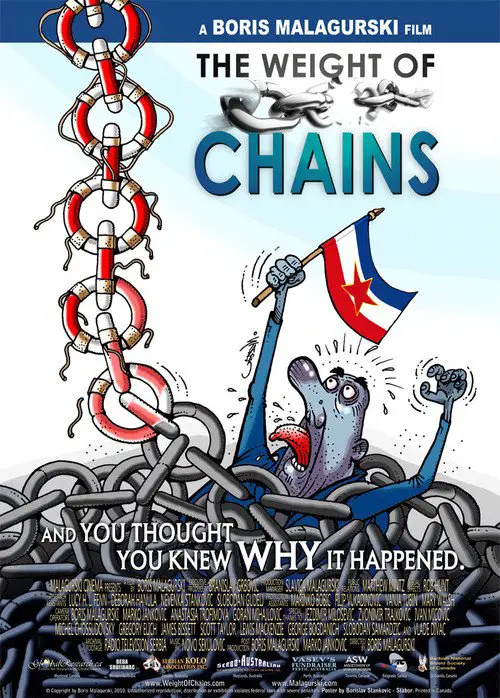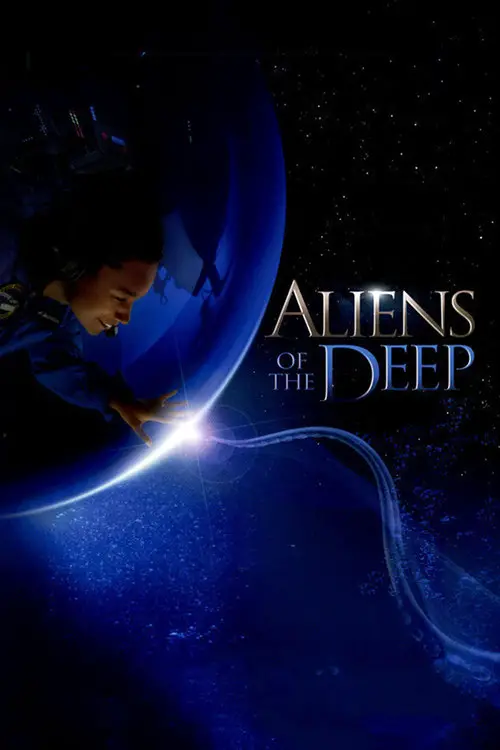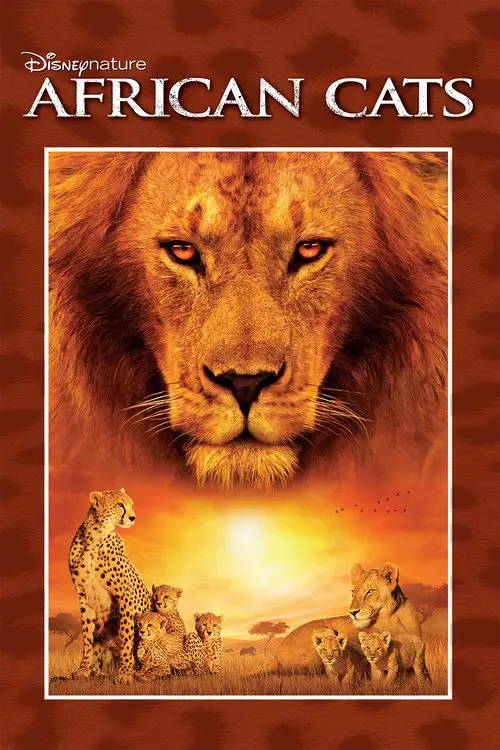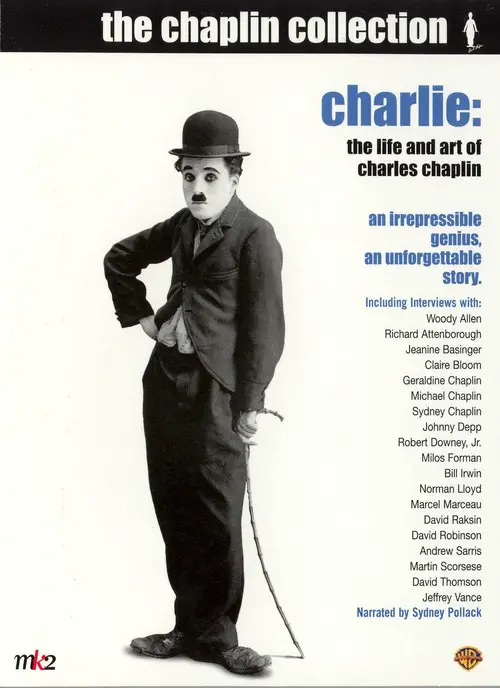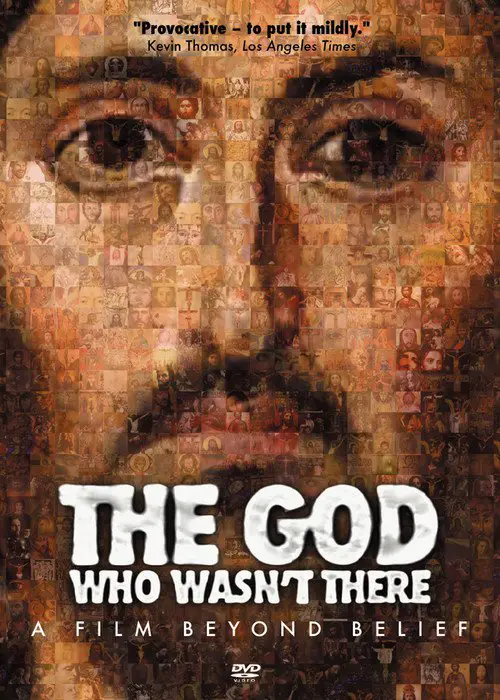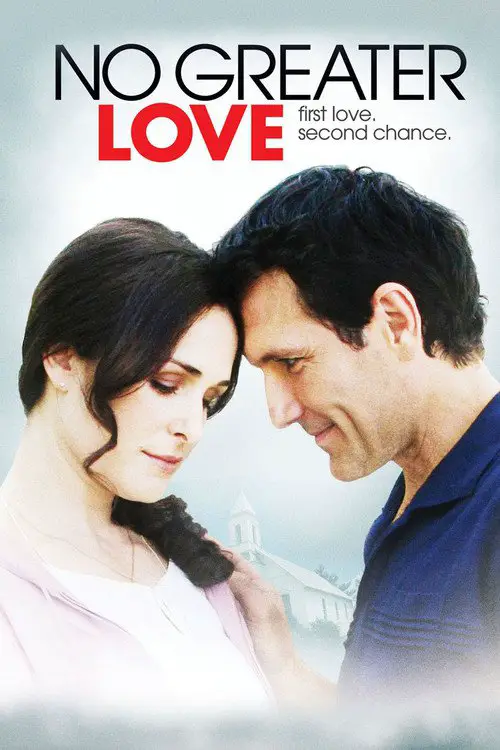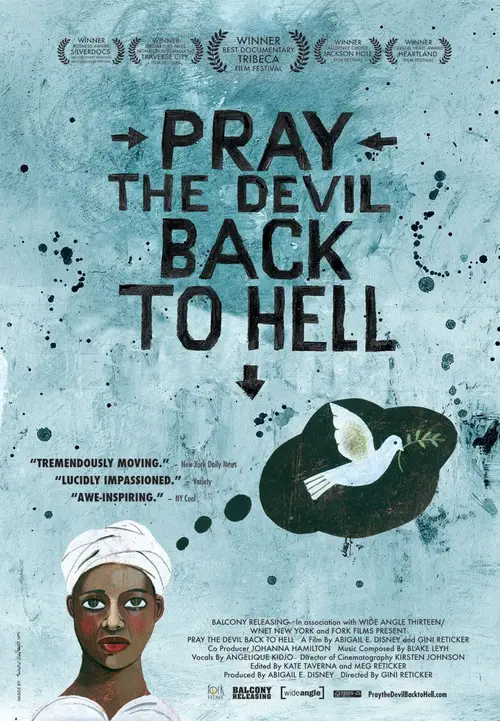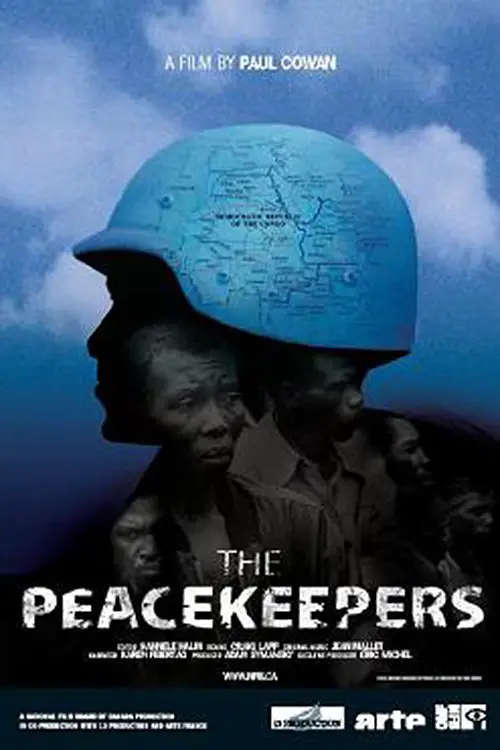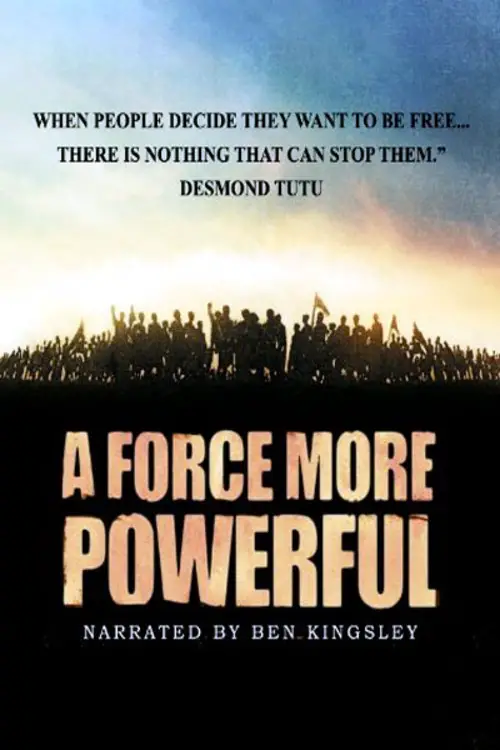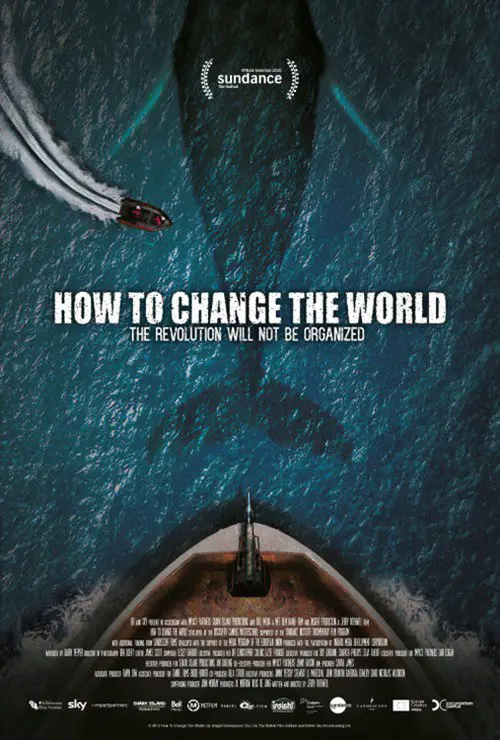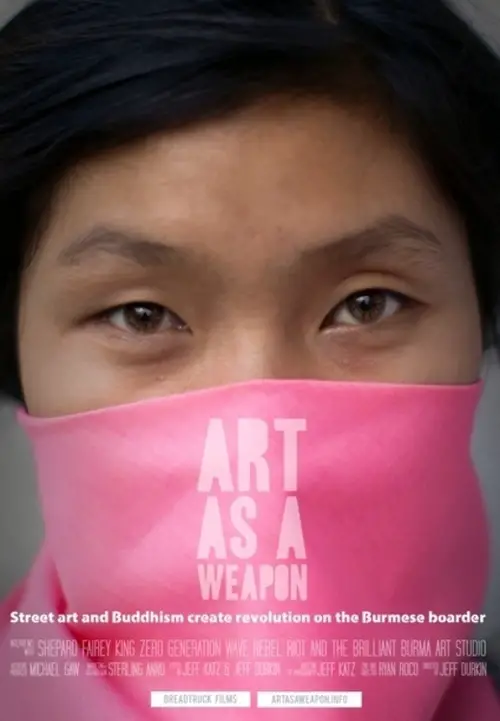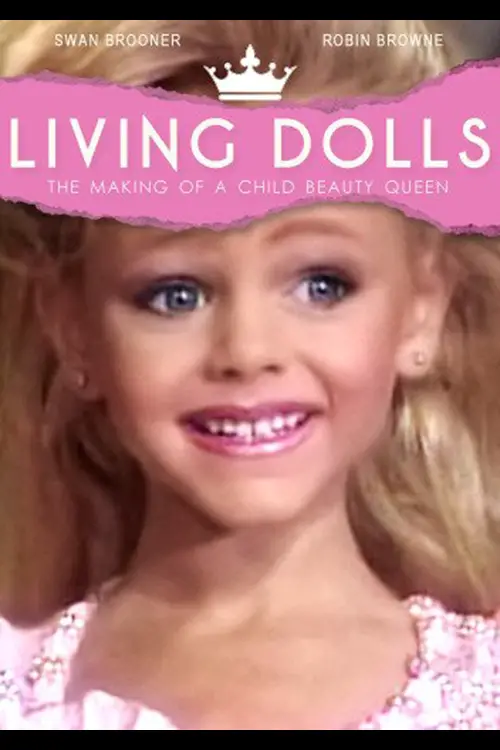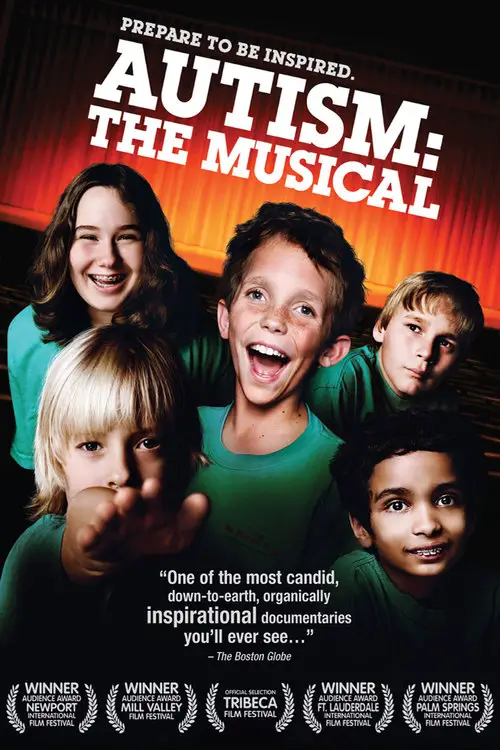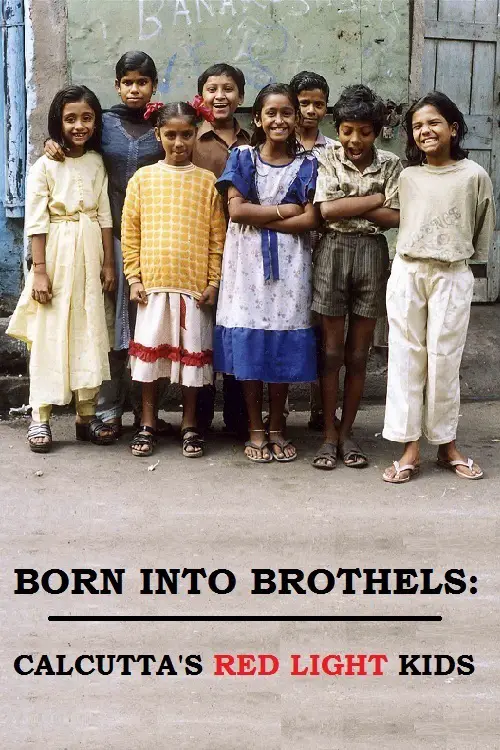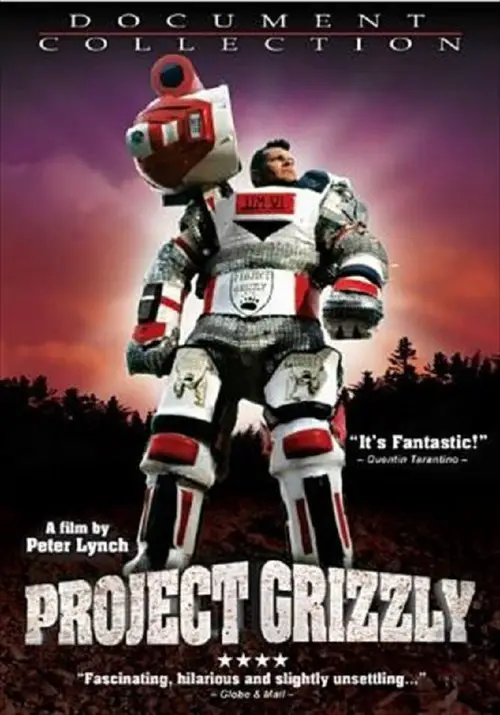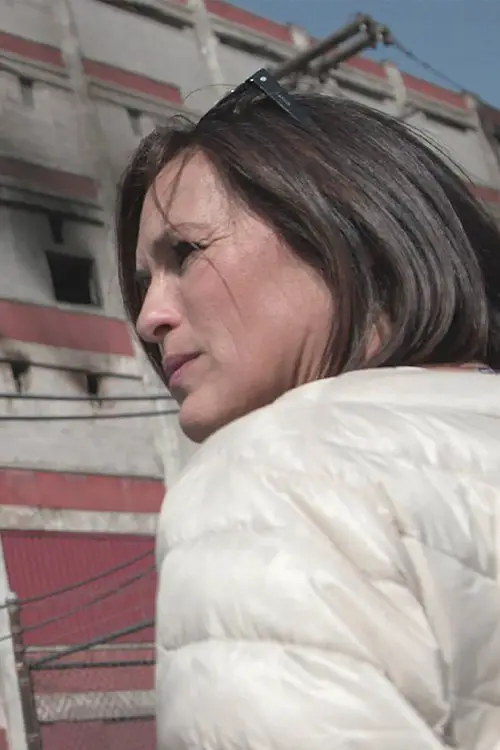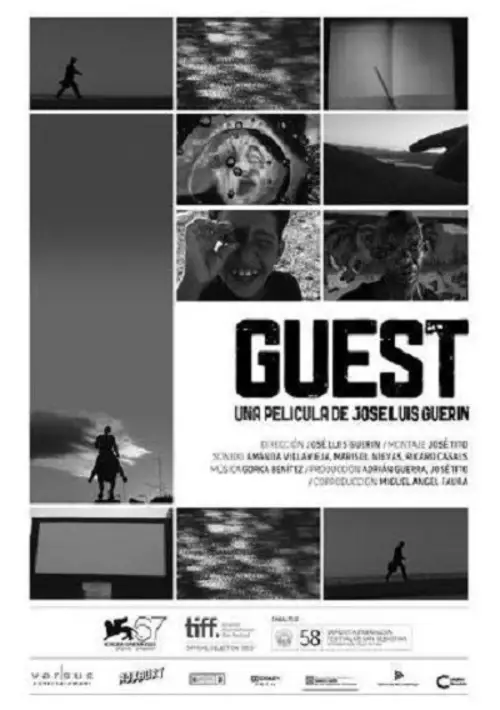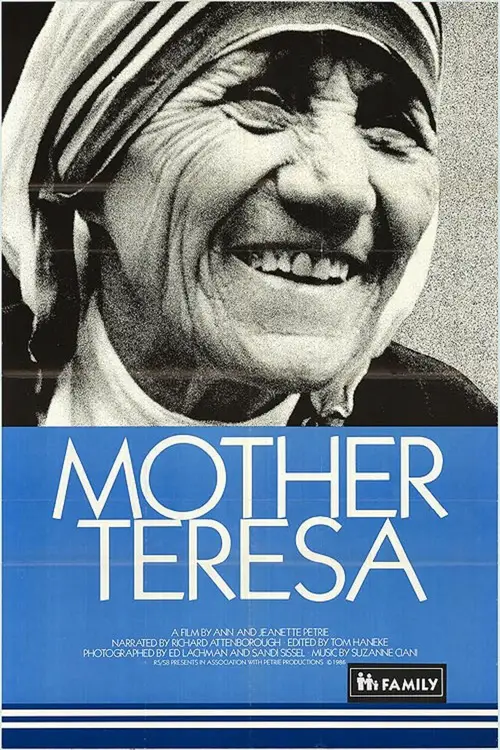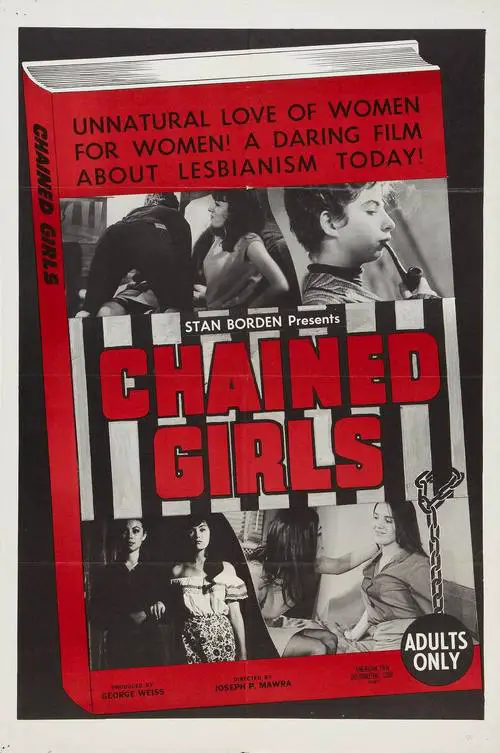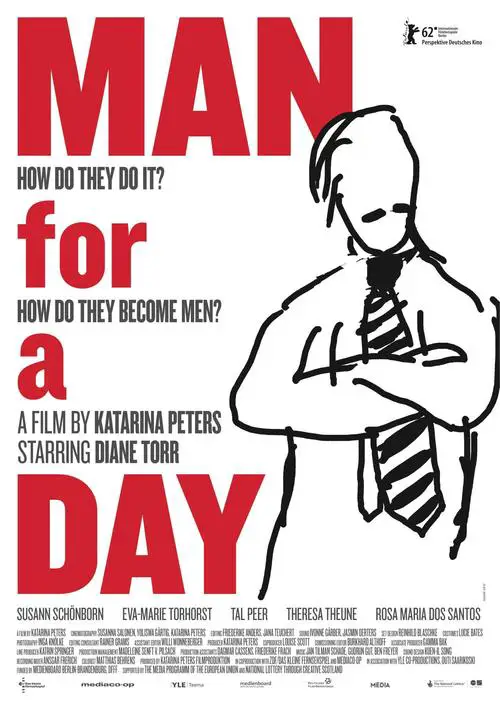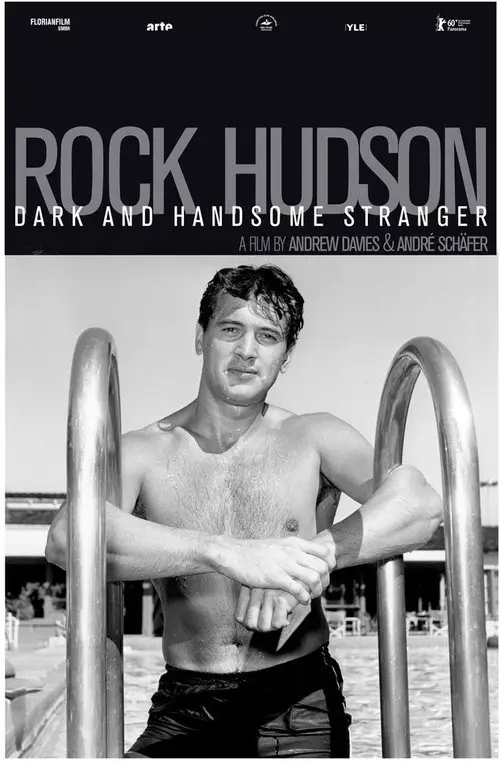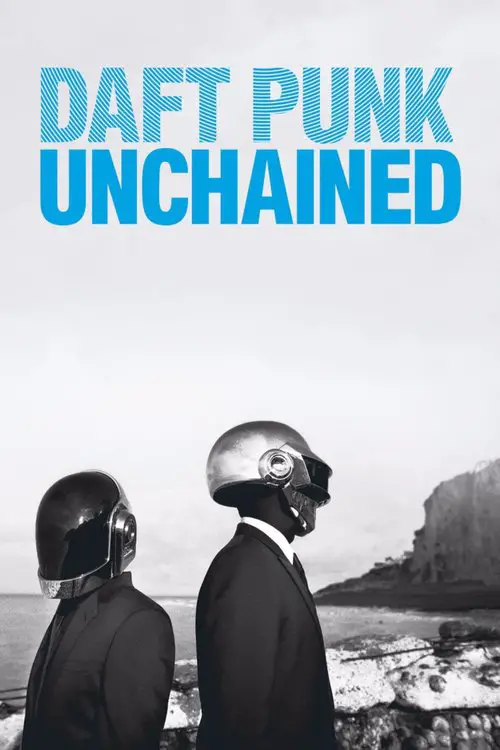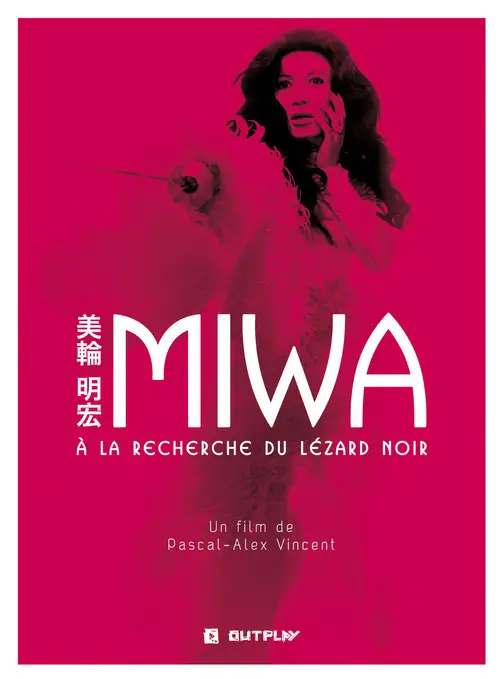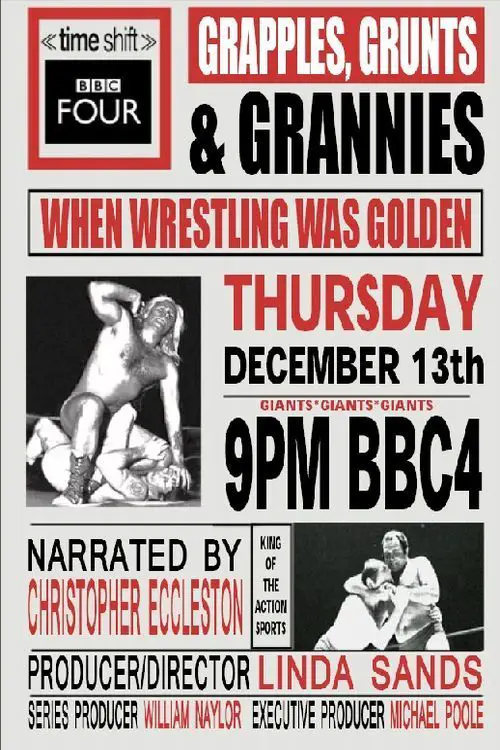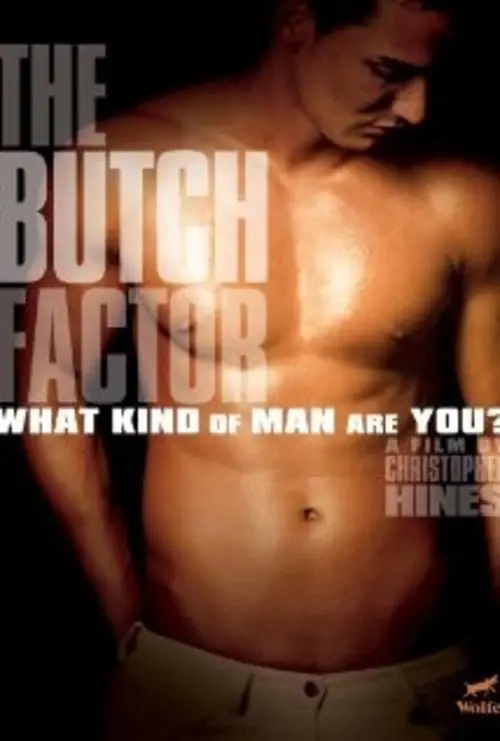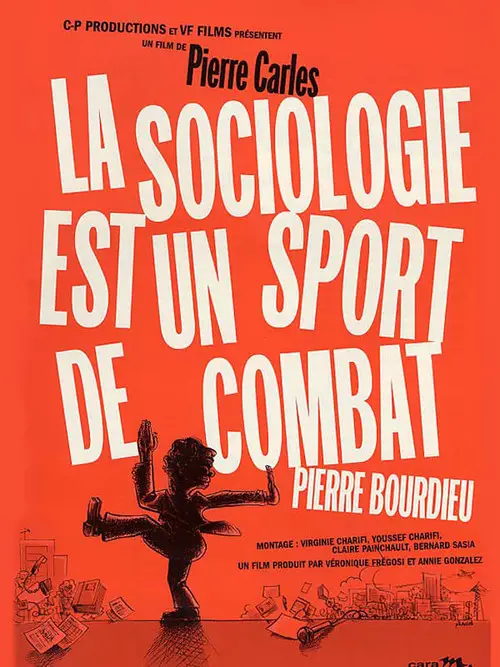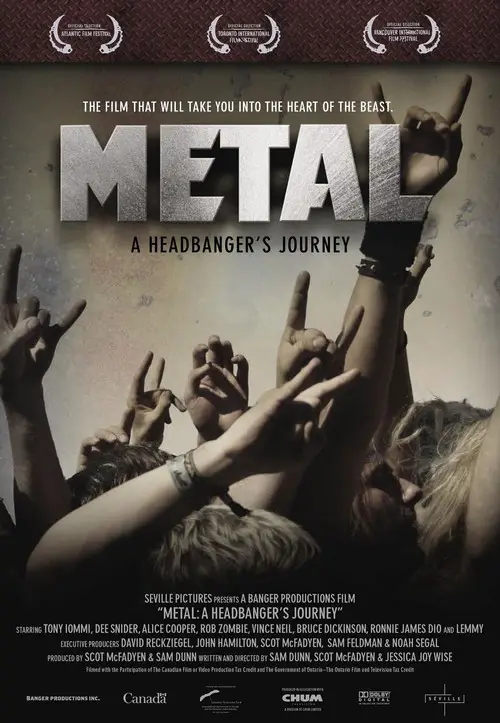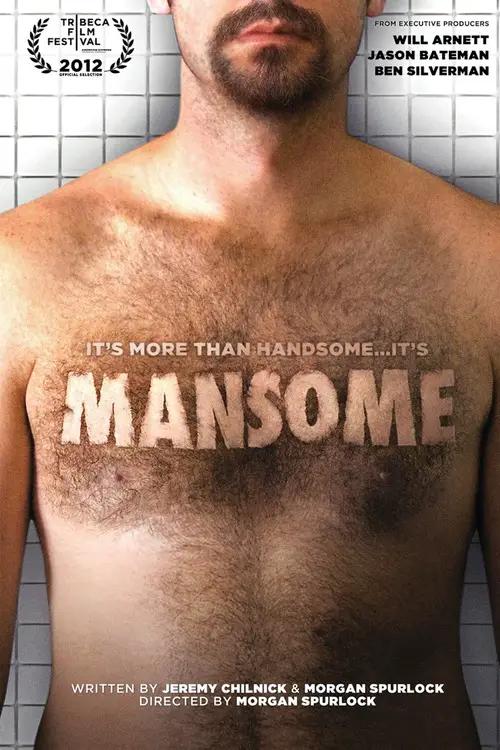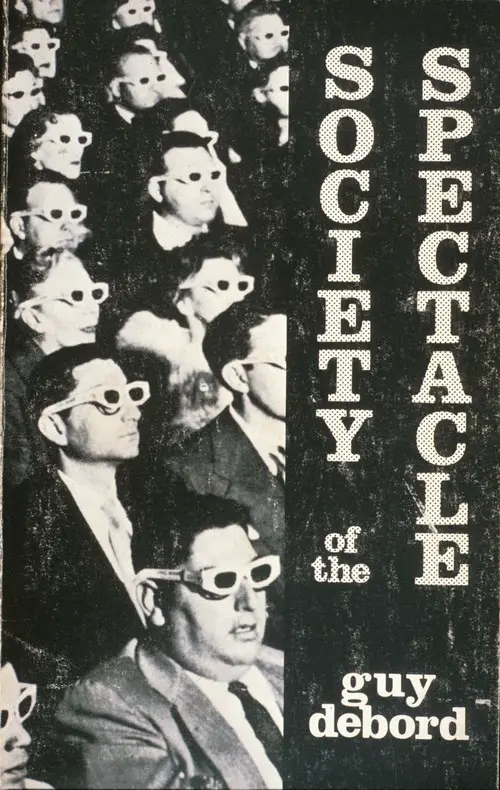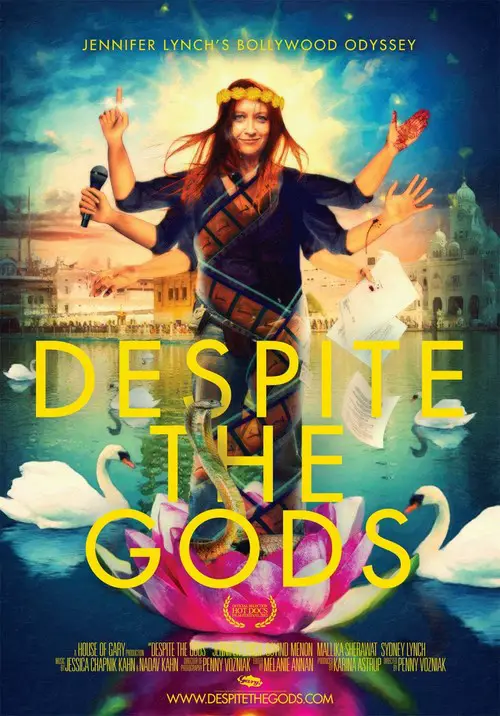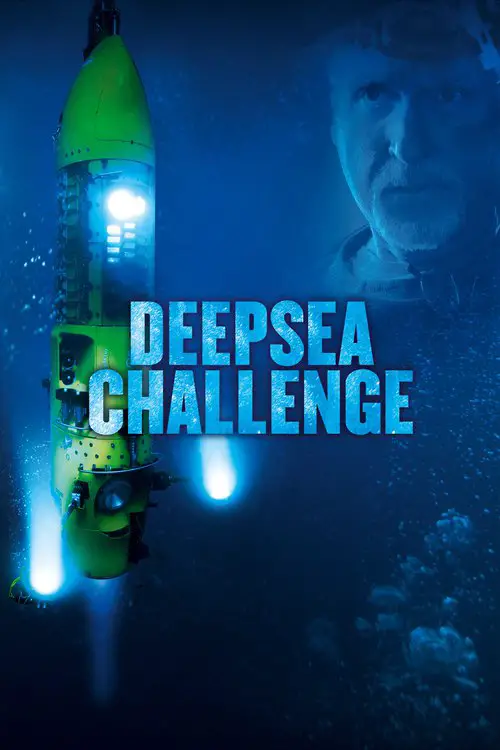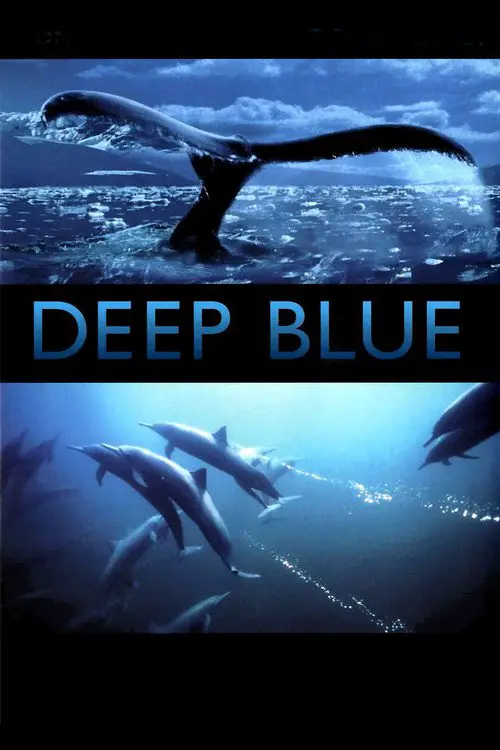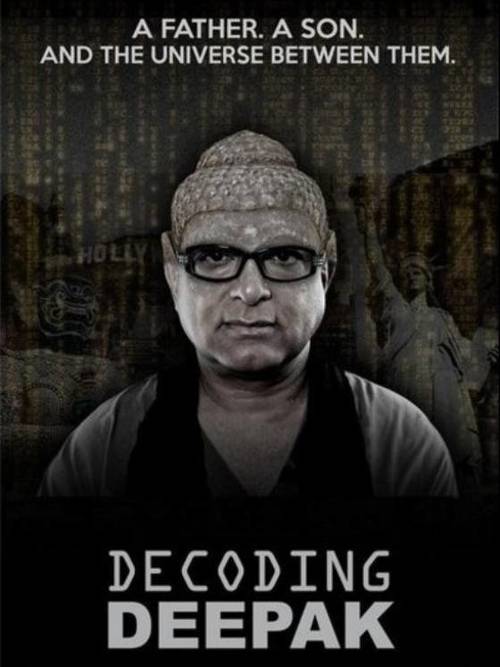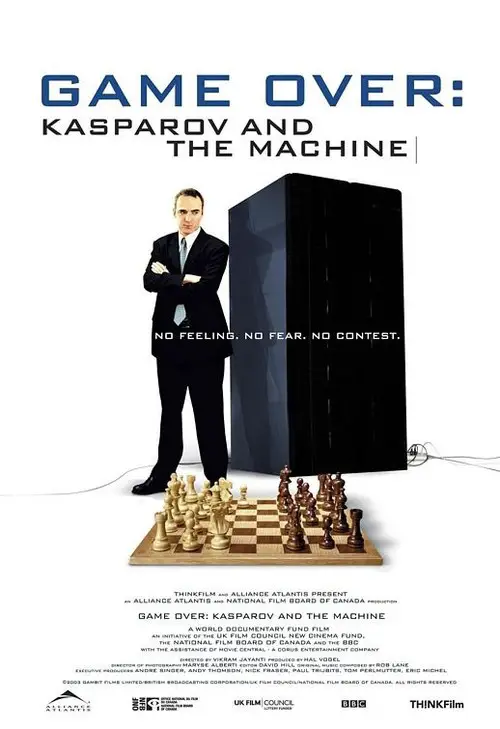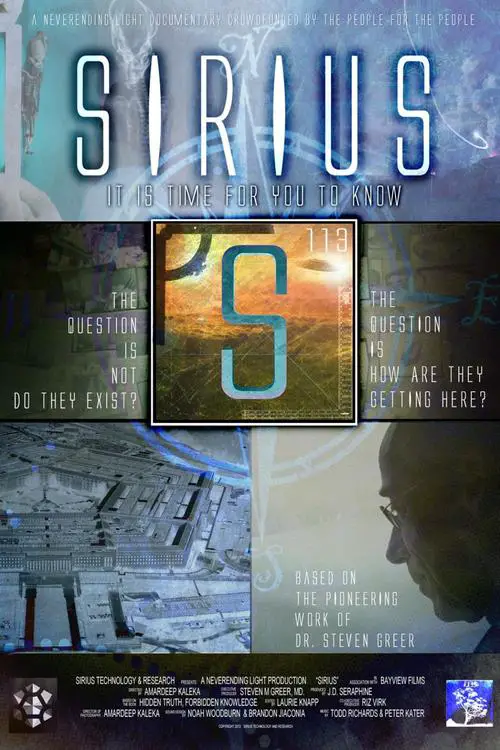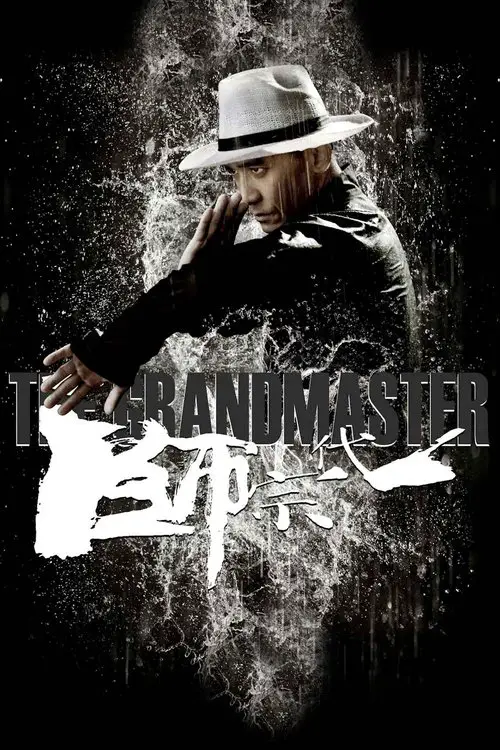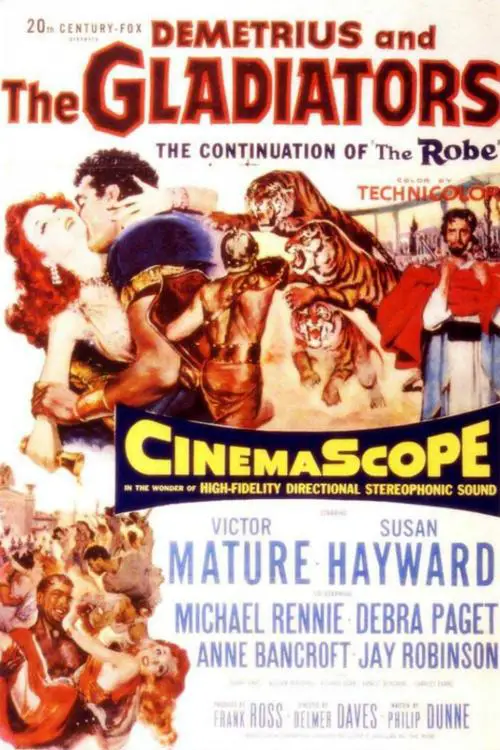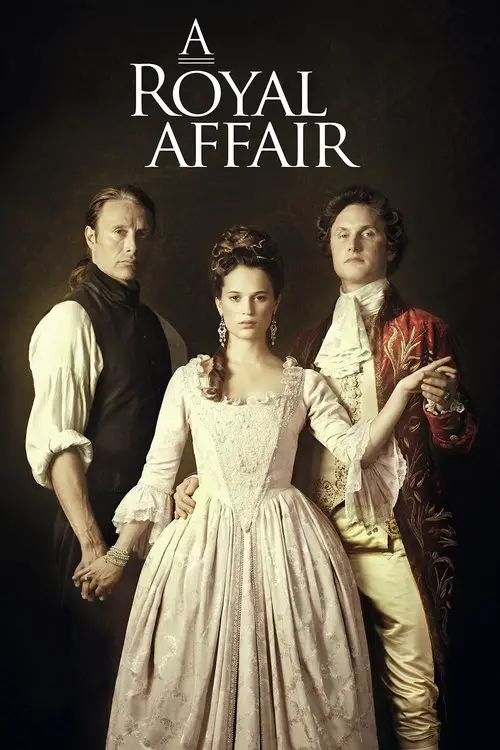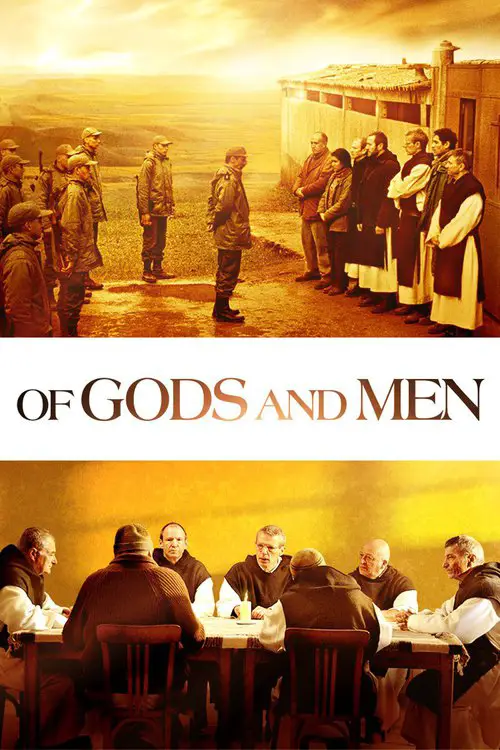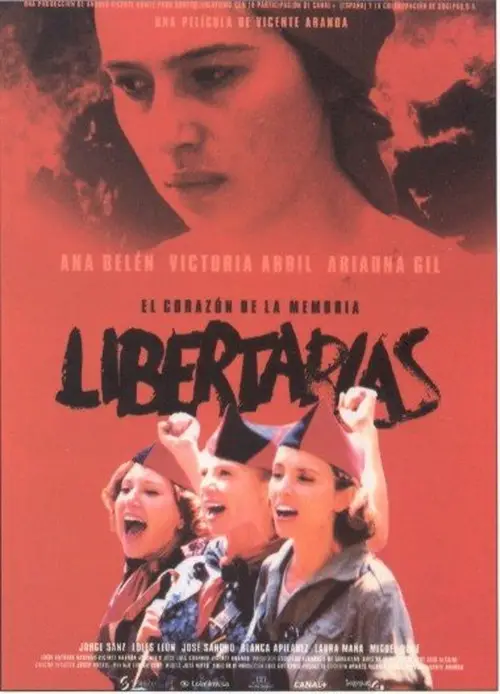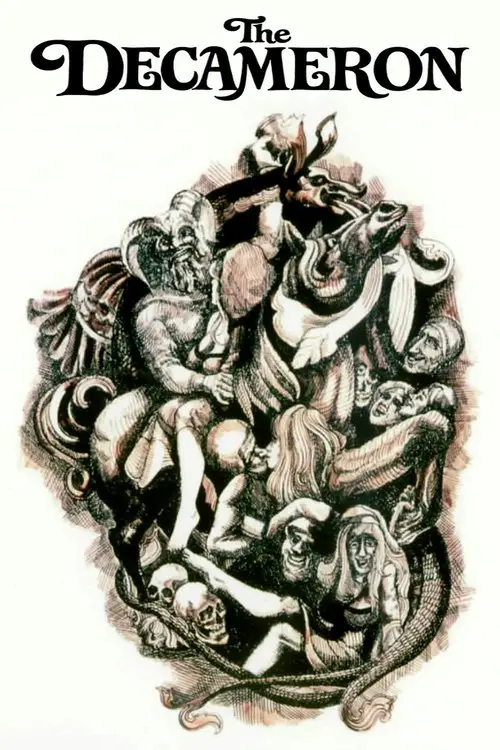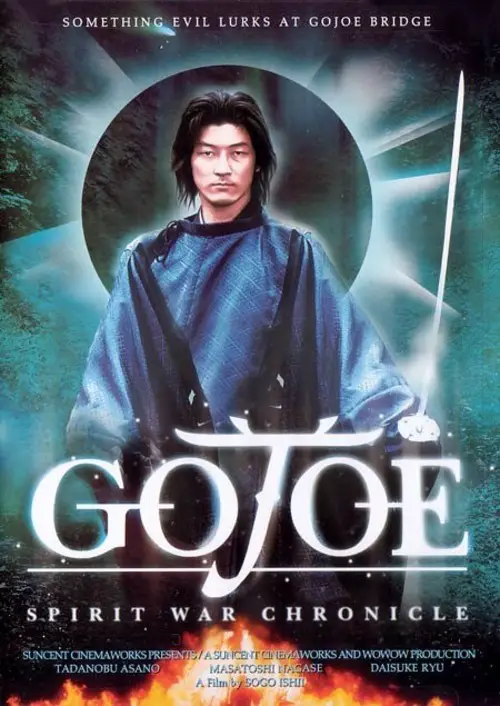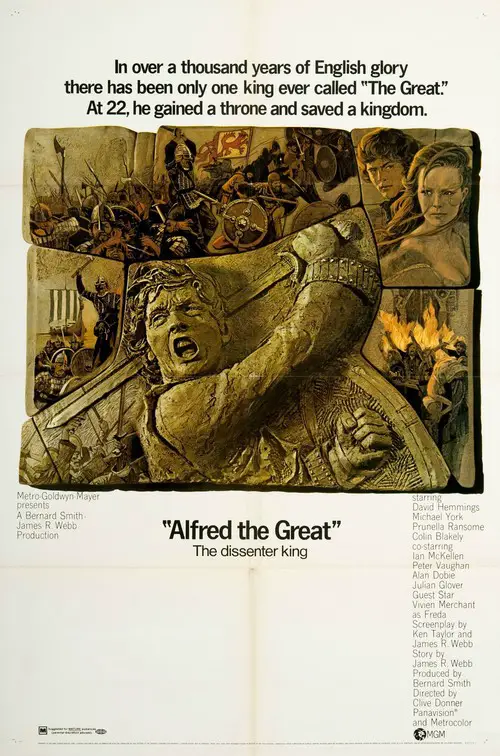Rita da Cascia (2004)
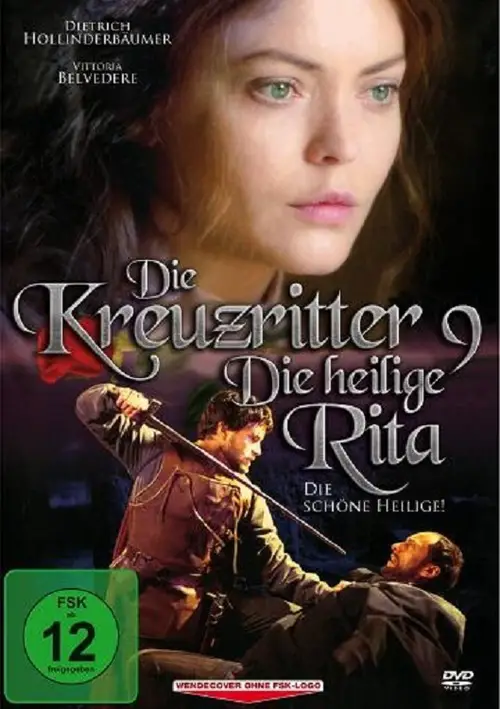
Similar movies
The Weight of Chains is a Canadian documentary film that takes a critical look at the role that the US, NATO and the EU played in the tragic breakup of a once peaceful and prosperous European state - Yugoslavia. The film, bursting with rare stock footage never before seen by Western audiences, is a creative first-hand look at why the West intervened in the Yugoslav conflict, with an impressive roster of interviews with academics, diplomats, media personalities and ordinary citizens of the former Yugoslav republics. This film also presents positive stories from the Yugoslav wars - people helping each other regardless of their ethnic background, stories of bravery and self-sacrifice.
African Cats captures the real-life love, humor and determination of the majestic kings of the savanna. The story features Mara, an endearing lion cub who strives to grow up with her motherâs strength, spirit and wisdom; Sita, a fearless cheetah and single mother of five mischievous newborns; and Fang, a proud leader of the pride who must defend his family from a once banished lion.
Commentator-comic Bill Maher plays devil's advocate with religion as he talks to believers about their faith. Traveling around the world, Maher examines the tenets of Christianity, Judaism and Islam and raises questions about homosexuality, proof of Christ's existence, Jewish Sabbath laws, violent Muslim extremists.
A growing number of Evangelical Christians believe there is a revival underway in America that requires Christian youth to assume leadership roles in advocating the causes of their religious movement. Jesus Camp follows children at a Christian summer camp as they hone their "prophetic gifts" and are schooled in how to "take back America for Christ." The film is a first-ever look into an intense training ground that recruits born-again Christian children to become an active part of America's political future.
Jeff and Heather Baker were life long sweethearts and happily married... for a time. But at her greatest moment of weakness, Heather abandons Jeff, forcing Jeff to raise their young son alone. Ten years later, through a God ordained encounter, Jeff and Heather meet again. They must wrestle with forgiveness, reconciliation and the pressing of the Savior on their hearts.
Pray The Devil Back To Hell documents a peace movement called Women of Liberia Mass Action for Peace. Organized by social worker Leymah Gbowee, the movement started with praying and singing in a fish market. [2] Leymah Gbowee organized the Christian and Muslim women of Monrovia, Liberia to pray for peace and to organize nonviolence protests. Dressed in white to symbolize peace, and numbering in the thousands, the women became a political force against violence and against their government.
With unprecedented access to the UN Department of Peacekeeping, The Peacekeepers provides an intimate and dramatic portrait of the struggle to save "a failed state" The film follows the determined and often desperate maneuvers to avert another Rwandan disaster, this time in the Democratic Republic of Congo (the DRC). Focusing on the UN mission, the film cuts back and forth between the UN headquarters in New York and events on the ground in the DRC. We are with the peacekeepers in the "Crisis Room" as they balance the risk of loss of life on the ground with the enormous sums of money required from uncertain donor countries. We are with UN troops as the northeast Congo erupts and the future of the DRC, if not all of central Africa, hangs in the balance. In the background, but often impinging on peacekeeping decisions, are the painful memory of Rwanda, the worsening crisis in Iraq, global terrorism, and American hegemony in world affairs.
A Force More Powerful is a 1999 feature-length documentary film and a 2000 PBS series written and directed by Steve York about non-violent resistance movements around the world. Executive producers were Dalton Delan and Jack DuVall. Peter Ackerman was the series editor and principal content advisor.
In 1971, a group of friends sail into a nuclear test zone, and their protest captures the world's imagination. Using never before seen archive that brings their extraordinary world to life, How To Change The World is the story of the pioneers who founded Greenpeace and defined the modern green movement.
Street art, creativity and revolution collide in this beautifully shot film about artâs ability to create change. The story opens on the politically charged Thailand/Burma border at the first school teaching street art as a form of non-violent struggle. The film follows two young girls (Romi & Yi-Yi) who have escaped 50 years of civil war in Burma to pursue an arts education in Thailand. Under the threat of imprisonment and torture, the girls use spray paint and stencils to create images in public spaces to let people know the truth behind Burma's transition toward "artificial democracy." Eighty-two hundred miles away, artist Shepard Fairey is painting a 30â mural of a Burmese monk for the same reasons and in support of the students' struggle in Burma. As these stories are inter-cut, the film connects these seemingly unrelated characters around the concept of using art as a weapon for change.
The academy award winning documentary depicting the lives of child prostitutes in the red light district of Songachi, Calcutta. Director Zana Briski went to photograph the prostitutes when she met and became friends with their children. Briski began giving photography lessons to the children and became aware that their photography might be a way for them to lead better lives.
ROOTSY HIP is a resonant documentary which charts the boundaries between the idyllic dreams and the harsh realities of an eccentric collection of white rappers in Mobile, Alabama, and Memphis, Tennessee. Hindered by financial obligation, family pressure, social scorn and even domestic eviction, these resilient artists cling to the benevolent virtues of hip-hop as a bond and a moral code which enables them to not only endure, but to spiritually thrive in the face of adversity.
Documentary about the lifelong project of Troy Hurtubise, a man who has been obsessed with researching the Canadian grizzly bear up close, ever since surviving an early encounter with such a bear. The film documents Hurtubise's diligent work to improve his homemade "grizzly-proof" suit of armour, his efforts to test its resilience, and his forays into the Rockies to track down the grizzlies he dreams of meeting. The film manages to capture the humor of the project as well as its sincerity.
We follow the daily activities of Mother Teresa and her nuns, in service to the poor of India and the world. Mother Teresa attends to the basic needs of her nuns and the poor, while at the same time, balances her role as world-recognized leader. Throughout the film, we witness personal and "behind-the-scenes" events, including the blessing ceremony of a nun becoming part of Mother Teresa's "Sisters of the Poor" convent.
For what it is "chained girls" is one of the best cinematic experiences I've ever had. This is the perfect companion/foil to the film "Before Stonewall." Rarely has a movie made me laugh so hard and so deeply. It could just be that it's a girl/girl thing, but there's something about seeing these stereo-types so sloppily portrayed. Really this film is a treat if you are in the right frame of mind and/or watching it with someone who truly has a firm grasp of irony. Invite some friends over, grab a bottle of wine and enjoy.
Gender activist Diane Torrâs worldwide appearances and workshops are now legendary. For the past thirty years, the main focus of this performance artistâs work has been an exploration of the theoretical, artistic as well as the practical aspects of gender identity. Katarina Petersâ documentary observes a Diane Torr workshop in Berlin in which a group of open-minded women come together to discover the secrets of masculinity. What makes a man a man and a woman a woman? Precisely when and where is gender identity formatted? How much is nature and how much nurture? Each of Torrâs workshops represents an open-ended laboratory experiment in social behaviour in which the question is posed: is it possible to deliberately play out different roles and create a space in which to transgress both masculine and feminine characteristics?
Twenty five years after the death of Rock Hudson, friends, acquaintances, colleagues, biographers and movie historians discuss his career, his personal life and his death, all especially in relation to his closeted homosexuality. Born Roy Fitzgerald, Hudson treated who was known as "Rock Hudson" as being a studio creation that was somewhat outside himself. However, he sometimes was still "Rock Hudson: movie star" to those who knew him. Publicly, he had to maintain the façade of that creation, the public who saw in him a handsome, rugged, masculine yet likable and safe leading man and movie star.
Daft Punk Unchained is the first film about the pop culture phenomenon that is Daft Punk, the duo with 12 million albums sold worldwide and seven Grammy Awards. Throughout their career Thomas Bangalter and Guy-Manuel de Homem-Christo have always resisted compromise and the established codes of show business. They have remained determined to maintain control of every link in the chain of their creative process. In the era of globalisation and social networks, they rarely speak in public and neither do they show their faces on TV. This documentary explores this unprecedented cultural revolution revealing a duo of artists on a permanent quest for creativity, independence and freedom.
Documentary filmmaker Robert Kenner examines how mammoth corporations have taken over all aspects of the food chain in the United States, from the farms where our food is grown to the chain restaurants and supermarkets where it's sold. Narrated by author and activist Eric Schlosser, the film features interviews with average Americans about their dietary habits, commentary from food experts like Michael Pollan and unsettling footage shot inside large-scale animal processing plants.
A legendary entertainer and a pioneer of gay activism, Miwa was born Akihiro Maruyama. As a young singer, Miwa popularized androgyny as a fashion statement, fusing the masculine and the feminine into a signal of a new generation of aesthetics. This evolved into performing as a woman and living off-stage as a man. With glitter, wit, evening gowns, and enchanting storytelling, Miwa looks back over a 50-year career and a fascinating life in music, film and television.
Timeshift turns back the clock to a time when villains wore silver capes, grannies swooned at the sight of bulky men in latex and the most masculine man in the country was called Shirley. In its heyday, British professional wrestling attracted huge TV audiences and made household names of generations of wrestlers from Mick McManus and Jackie 'Mr TV' Pallo to Giant Haystacks and Big Daddy. With contributions from inside the world of wrestling and surprising fans such as artist Peter Blake, this is an affectionate and lively portrait of a lost era of simpler pleasures, both in and out of the ring.
What does mean to be gay and be a man? There's no straight answer for sure. From the Castro culture of the 1970s to todayâs Bears and gym rats, this fascinating investigation of gay men and sexuality blows the lid off old stereotypes and showcases a battalion of interviewees including muscle men, rodeo riders, rugby players and cops. The men speak candidly on topics from homophobia to metrosexuality to embracing effeminacy as they reveal what it means to be a gay man in America today.
The film discusses the traits and originators of some of metal's many subgenres, including the New Wave of British Heavy Metal, power metal, Nu metal, glam metal, thrash metal, black metal, and death metal. Dunn uses a family-tree-type flowchart to document some of the most popular metal subgenres. The film also explores various aspects of heavy metal culture.
From America's greatest beardsman, to Morgan Spurlock's own mustache, Executive Producers Will Arnett, Jason Bateman and Ben Silverman bring us a hilarious look at men's identity in the 21st century. Models, actors, experts and comedians weigh in on what it is to be a man in a world where the definition of masculinity has become as diverse as a hipster's facial hair in Williamsburg. The hilarious follicles of men's idiosyncratic grooming habits are thoroughly combed over as men finally take a long hard look in the mirror.
Described as being a film about determination, danger and the oceanâs greatest depths, James Cameron's "Deepsea Challenge 3D" tells the story of Cameronâs journey to fulfill his boyhood dream of becoming an explorer. The movie offers a unique insight into Cameron's world as he makes that dream reality â and makes history â by becoming the first person to travel solo to the deepest point on the planet.
Garry Kasparov is possibly the greatest chess player who has ever lived. In 1997, he played a match against the greatest chess computer: IBM's Deep Blue. He lost. This film depicts the drama that happened away from the chess board from Kasparov's perspective. It explores the psychological aspects of the game and the paranoia surrounding IBM's ultimate chess machine.
Deep Web gives the inside story of one of the the most important and riveting digital crime sagas of the century -- the arrest of Ross William Ulbricht, the convicted 30-year-old entrepreneur accused to be 'Dread Pirate Roberts,' creator and operator of online black market Silk Road. The film explores how the brightest minds and thought leaders behind the Deep Web are now caught in the crosshairs of the battle for control of a future inextricably linked to technology, with our digital rights hanging in the balance.
Ip Man's peaceful life in Foshan changes after Gong Yutian seeks an heir for his family in Southern China. Ip Man then meets Gong Er who challenges him for the sake of regaining her family's honor. After the Second Sino-Japanese War, Ip Man moves to Hong Kong and struggles to provide for his family. In the mean time, Gong Er chooses the path of vengeance after her father was killed by Ma San.
The crowning achievement of Orson Wellesâs later film career, Chimes at Midnight returns to the screen after being unavailable for decades. This brilliantly crafted Shakespeare adaptation was the culmination of Wellesâs lifelong obsession with the Bardâs ultimate rapscallion, Sir John Falstaff, the loyal, often soused childhood friend to King Henry IVâs wayward son Prince Hal.
The story picks up at the point where "The Robe" ends, following the martyrdom of Diana and Marcellus. Christ's robe is conveyed to Peter for safe-keeping, but the emperor Caligula wants it back to benefit from its powers. Marcellus' former slave Demetrius seeks to prevent this, and catches the eye of Messalina, wife to Caligula's uncle Claudius. Messalina tempts Demetrius, he winds up fighting in the arena, and wavers in his faith.
A humble and simple Takezo abandons his life as a knight errant. He's sought as a teacher and vassal by Shogun, Japan's most powerful clan leader. He's also challenged to fight by the supremely confident and skilful Sasaki Kojiro. Takezo agrees to fight Kojiro in a year's time but rejects Shogun's patronage, choosing instead to live on the edge of a village, raising vegetables. He's followed there by Otsu and later by Akemi, both in love with him. The year ends as Takezo assists the villagers against a band of brigands. He seeks Otsu's forgiveness and accepts her love, then sets off across the water to Ganryu Island for his final contest.
The familiar story of Lieutenant Bligh, whose cruelty leads to a mutiny on his ship. This version follows both the efforts of Fletcher Christian to get his men beyond the reach of British retribution, and the epic voyage of Lieutenant Bligh to get his loyalists safely to East Timor in a tiny lifeboat.
In 1893, Gandhi is thrown off a South African train for being an Indian and traveling in a first class compartment. Gandhi realizes that the laws are biased against Indians and decides to start a non-violent protest campaign for the rights of all Indians in South Africa. After numerous arrests and the unwanted attention of the world, the government finally relents by recognizing rights for Indians, though not for the native blacks of South Africa. After this victory, Gandhi is invited back to India, where he is now considered something of a national hero. He is urged to take up the fight for India's independence from the British Empire. Gandhi agrees, and mounts a non-violent non-cooperation campaign of unprecedented scale, coordinating millions of Indians nationwide. There are some setbacks, such as violence against the protesters and Gandhi's occasional imprisonment. Nevertheless...
French drama based on the 1996 kidnapping and killing of seven monks in Algeria. A group of Trappist monks reside in the monastery of Tibhirine in Algeria, where they live in harmony with the largely muslim population. When a bloody conflict between Algeria's army and Muslim Jihadi insurgents disrupts the peace, they are forced to consider fleeing the monastery and deserting the villagers they have ministered to. In the face of deadly violence the monks wrestle with their faith and their convictions, eventually deciding to stay and help their neighbours keep the army and the insurgents at bay.
Max Manus is a Norwegian 2008 biographic war film based on the real events of the life of resistance fighter Max Manus (1914â96), after his contribution in the Winter War against the Soviet Union. The story follows Manus â played by Aksel Hennie â through the outbreak of World War II in Norway until peacetime in 1945.
At the outbreak of the Spanish Civil War, the nun Maria is forced to flee her convent. She takes refuge in a brothel, until it is liberated by a woman's anarchist group. Maria joins the group and eventually goes to the front. The women's group faces the problems of fighting not only the nationalists, but also factions on the left seeking to impose a more traditional military structure. Written by Brian Rawnsley
An adaptation of nine stories from Bocaccio's "Decameron": A young Sicilian is swindled twice, but ends up rich; a man poses as a deaf-mute in a convent of curious nuns; a woman must hide her lover when her husband comes home early; a scoundrel fools a priest on his deathbed; three brothers take revenge on their sister's lover; a young girl sleeps on the roof to meet her boyfriend at night; a group of painters wait for inspiration; a crafty priest attempts to seduce his friend's wife; and two friends make a pact to find out what happens after death. Pasolini is up to his old tricks satirizing the Church, and throwing in liberal doses of life and love
Benkei, a master fighter and killer, vows never to take another life after his conversion to Buddhism. His faith in pacifism, however, is shaken and ultimately broken by the attacks from a trio of fighters known only as "the demons". Taking up his sword once more, he sets out to end their murderous terror.
Shortly before his death in ancient Israel King David has a vision from God telling him that his younger son Solomon should succeed him as king. His other son Adonijah is unhappy and vows to attain the throne. Meanwhile the Egyptian Pharoah agrees to cede a Red Sea port to the Queen of Sheba is she can find a way to destroy Solomon, whose wisdom and benevolent rule is seen as a threat to more tyrannical monarchs in the region. Written by garykmcd
While Old England is being ransacked by roving Danes in the 9th century, Alfred is planning to join the priesthood. But observing the rape of his land, he puts away his religious vows to take up arms against the invaders, leading the English Christians to fight for their country. Alfred soundly defeats the Danes and becomes a hero. But now, although Alfred still longs for the priesthood, he is torn between his passion for God and his lust for blood.
September of 1944, a few days before Finland went out of the Second World War. A chained to a rock Finnish sniper-kamikadze Veikko managed to set himself free. Ivan, a captain of the Soviet Army, arrested by the Front Secret Police 'Smersh', has a narrow escape. They are soldiers of the two enemy armies. A Lapp woman Anni gives a shelter to both of them at her farm. For Anni they are not enemies, but just men.
© Valossa 2015–2026
| Privacy Policy
